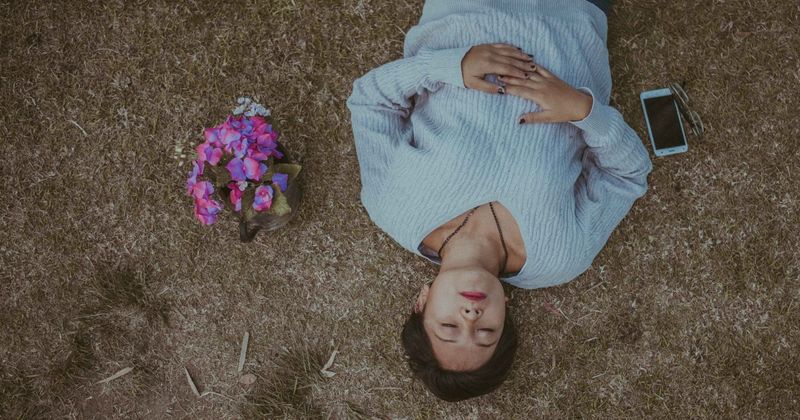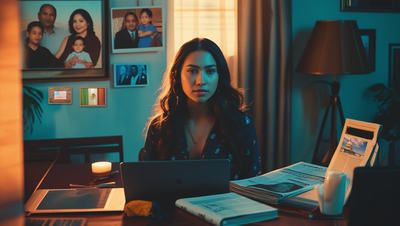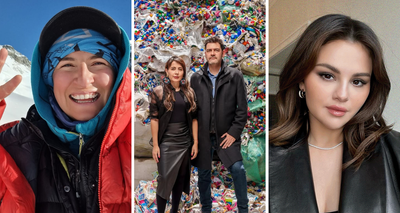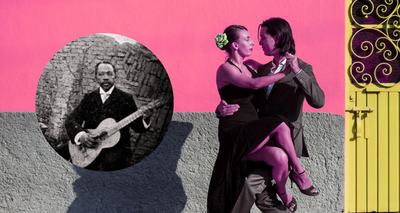Some time ago, in a conversation with a woman, I shared my experience as a survivor of sexual assault. To my surprise, she burst into tears and revealed that she too had been assaulted years ago and had never spoken about it to anyone. In her cry, I recognized shame and pain similar to the one I had felt when I could barely begin to process what had happened to me. After my conversation with her, I have carried out many other conversations with other folks and have found that like her, many others, especially people of color, are not allowed themselves to speak about the traumatic experiences which they have endured. Instead, we bury these traumas much as the women who came before us.
In light of the recent high profile sexual assault cases coming out…
In Mexico, the expression “Hija de la Chingada” is a common saying. Mexicans are said to be los hijos de la Malinche. From inception, children born out of violence and rape. Rape made possible through our machista culture that silences our mujeres. In Latinx communities as well as other communities of color, rape is often only murmured about, ignoring the fact that these murmurs produce generational trauma that carries on in our families and society at large. In many of us grew up listening to our mothers tell us to never go near that tio or primo when we were alone, but these things were only said in whisper: never to be addressed out loud in fear of tarnishing their reputation as a man.
Sadly and not surprisingly many of us still carry this attitude towards sexual assault ingrained in us. The perpetrator almost always goes unpunished and unperturbed while the survivor is left to carry the burden and keep quiet. We shame the survivor and make them believe that it was their fault, that somehow they should have known better. But in holding these attitudes, we do not allow the survivors to heal and are complicit in allowing the cycle of sexual assault to be perpetuated further by refusing to address the issue.
A couple of years ago, I was sexually assaulted. It took me years to process what had happened to me and finally admit to myself that it had not been my fault. All my life I had been been socialized into believing that when it came to rape it was best kept a secret, as it would reap nothing but shame for one’s self. For years, I carried that burden with shame and guilt for having allowed that to happen to me. Until I realized this was not healthy and that in order to heal I needed to address what had happened to me, and put myself first.
I embarked on a journey of radical self- love and healing, opening up to friends and siblings about my experience, started going to the gym and doing little things that made me feel empowered and in control over my own life and body once again. Little by little, I have learned to be gentle with myself and trust men again. It has been a long process of unlearning much of the bullshit taught to us but it has been such a worthwhile journey to regain me, one which I hope for every survivor to embark.
In light of the recent high profile sexual assault cases coming out I hope for this: I pray that this will open the door to much needed awareness on sexual assault prevention and that blaming the victim is never the answer. That people, especially women of color feel comfortable to speak about their experiences as survivors and begin the process of healing. Historically, women of color have been silenced countless times, their labor gone unappreciated and it is time to start making their well being a priority. It is traumatic enough to be a survivor of sexual assault and to have to worry about the repercussions of trying to seek physical and emotional help afterwards.
Help Power Up Our Work. Sign up for our ‘BoldLatina News’ or Become A ‘BoldLatina Collective’ Member By Investing In Our Future.
I pray that women of color who have gone through assault to know they are not at blame, that they do not have to carry the burden alone and that the trauma that has been inflicted upon them does not dictate who they are. I pray that we may think critically in how we address survivors, rape culture and that we do not shy away from the important and uncomfortable conversations this may bring. Only then will we begin to see the changes in our culture that are so very needed.
Read on about Latinx cultural + family issues with the The Creepy Uncle
Do you have a story to share? Submit to Community Submissions.
Community Submitted // Liz Muñoz
cabrona y cachetona, pero bien cariñosa
IG: @malcriada_munoz






